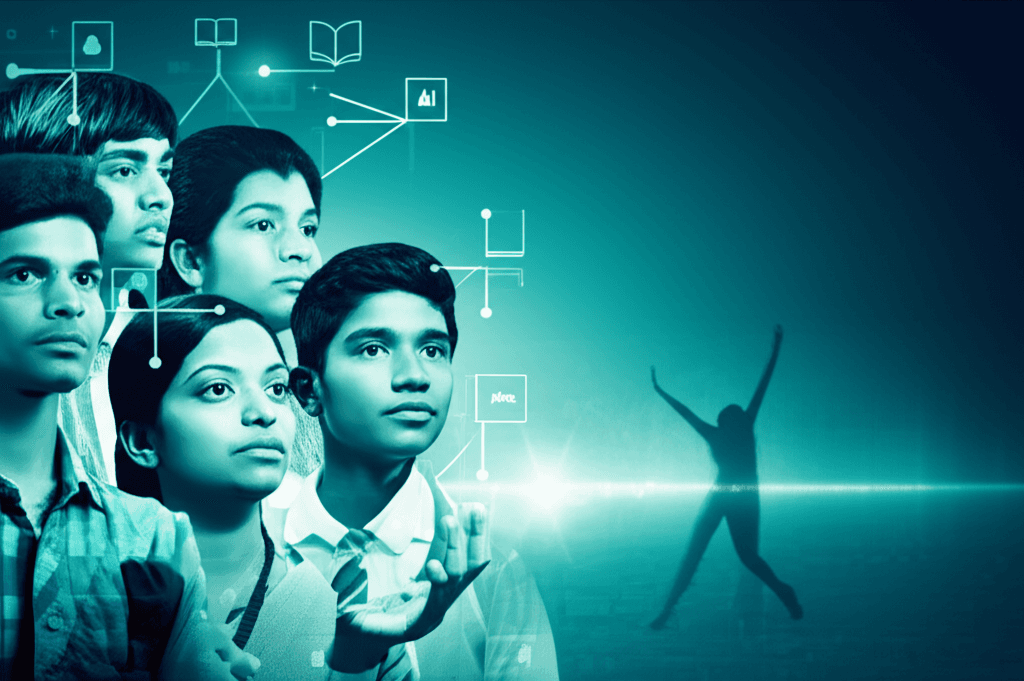75% of Indian Students Demand AI Education Amid Job Future Fears
Indian students fear AI's career impact, but their overwhelming demand for education presents a powerful path to readiness.
July 17, 2025

A significant portion of India's student population is looking towards the future of work with a sense of apprehension, as the rapid advancement of artificial intelligence casts a long shadow over their career prospects. A recent report from the global edtech platform BrightCHAMPS reveals that 38% of Indian students are worried about the future of jobs due to AI.[1][2] This anxiety, however, is coupled with a strong, proactive demand for preparedness, as a staggering 75% of the same student cohort believes that AI education should be formally integrated into their school curriculum.[1][2] This dual sentiment of concern and curiosity highlights a critical turning point for India's youth, who stand at the intersection of a demographic dividend and a technological revolution that promises to be both disruptive and transformative.
The findings from the #StudentsSpeakAI report, which surveyed 1,425 students across 29 countries including India, paint a detailed picture of a generation grappling with a complex new reality.[1][2] The 38% of Indian students who express worry about their job future reflect a concern that slightly surpasses the global average of 36%.[1][2] This anxiety is rooted in the fear of job displacement and the uncertainty of which skills will remain relevant in an automated world. The students' call for formal AI education is not just a desire for another subject, but a demand for the tools necessary to navigate and shape their own futures. Despite their high engagement with AI tools—63% of Indian students use them regularly, with ChatGPT being the most popular—there is a significant knowledge gap.[1][2] A mere 10% of Indian students feel confident in their AI knowledge, and only 34% of students globally claim to understand how AI works.[1][2] This lack of deep understanding is further complicated by the challenge of discerning manipulated content, with half of Indian students admitting they struggle to distinguish between real and AI-generated media.[1][2]
This clear demand from students for structured AI learning is placing a new and urgent emphasis on India's educational framework. The country's National Education Policy (NEP) 2020 has already acknowledged the importance of emerging technologies, recommending the integration of subjects like AI and coding from the middle school level (Grade 6 onwards).[3][4][5] Following this directive, the Central Board of Secondary Education (CBSE) has introduced AI as a skill subject for classes IX to XII and even as a foundational module for Class VIII.[6] These initiatives are gaining traction, with nearly 800,000 students at the secondary level and over 50,000 at the senior secondary level enrolling in AI courses for the 2024-25 academic session.[6] However, the path to universal AI literacy in schools is fraught with challenges, including the need for widespread teacher training, updated digital infrastructure, and a curriculum that can keep pace with the rapid evolution of artificial intelligence. Edtech platforms are stepping in to bridge this gap, offering supplemental courses in AI, robotics, and other next-generation skills to meet the burgeoning demand from both students and parents.[7][8][9]
The concerns of these students are a direct reflection of the dual-impact AI is projected to have on India's economy. Industry reports, including those from NASSCOM, consistently highlight that roles in AI and machine learning are among the most in-demand in the tech sector.[10][11] This signifies a massive opportunity. However, the same wave of technology threatens to automate or significantly alter routine jobs, creating a polarized workforce.[11] This "double-edged sword" scenario, as described in one analysis, involves the potential displacement of workers in roles heavy on repetitive tasks while simultaneously creating new, higher-value jobs that require a blend of technical and soft skills.[11] Industry leaders suggest the immediate outcome may not be mass layoffs but rather a redefinition of existing roles, demanding widespread reskilling and upskilling.[11][12] A NASSCOM report highlights that the technology services industry is undergoing a "human-centric productivity revolution" where AI elevates roles rather than eliminating them.[12] This transformation necessitates a workforce that is not only technically proficient but also adept in creativity, critical thinking, and lifelong learning—skills that are less susceptible to automation.[13]
Ultimately, the apprehension among 38% of Indian students is a rational and crucial signal to the nation's policymakers, educators, and industry leaders. It underscores a disconnect between the pace of technological change and the current state of educational readiness. While the government has laid the policy groundwork with NEP 2020 and initiatives like the National Strategy for Artificial Intelligence, the students' call for more robust in-school education shows that the impact of these policies must be felt more tangibly in the classroom.[3][4] The anxiety of the current generation of students can be a powerful catalyst for change. By addressing their concerns and meeting their demands for relevant, future-focused education, India can transform this apprehension into ambition. Harnessing the potential of its vast youth population and empowering them with the skills to thrive in an AI-driven world will be paramount to securing India's position as a global leader in the technological era.